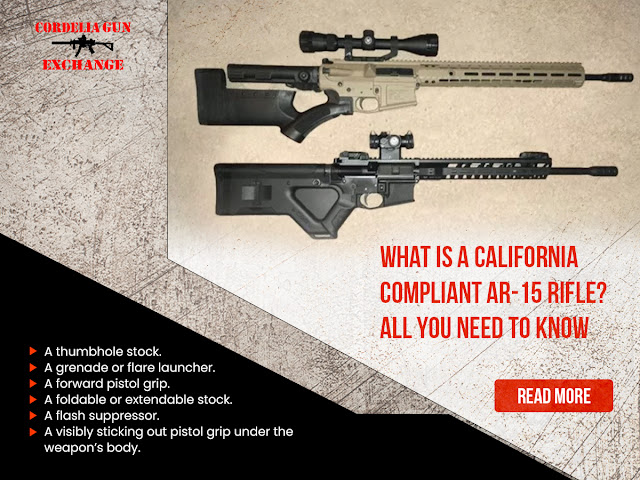Which Types of 9mm Pistols Are Best for Beginners
If you're new to firearms and thinking about buying your first handgun, understanding the types of 9mm pistols available is a smart first step. Choosing the right pistol for beginners involves learning about how each type functions, their advantages, and what makes one more beginner-friendly than another.
Whether you’re interested in recreational shooting, home defense, or just looking to understand firearm basics, this guide will help you make a confident and informed decision. Let’s begin by answering a fundamental question.
What Are Pistols?
Pistols are handheld firearms designed to be operated with one hand. They are typically used for self-defense, law enforcement, and sport shooting. Unlike rifles or shotguns, pistols are compact and easy to carry, making them popular among civilians and professionals alike.
There are various types of pistols, each with distinct mechanics and usability. If you're wondering about types of pistols names, they often reflect the firing mechanism or design—such as semi-automatic, revolver, or bolt-action.
For beginners, especially in the 9mm category, choosing the right type can influence your comfort, learning curve, and overall safety.
Best 9mm Pistols for Beginners
1. Bolt-Action Pistols
Overview:
Bolt-action pistols are rare in the handgun world. These pistols operate manually; you must lift and pull back the bolt to eject a spent cartridge and chamber a new one.
Beginner Suitability:
While bolt-action rifles are popular for their accuracy, bolt-action pistols are not typically recommended for beginners. They are slow to operate and usually used in niche shooting sports rather than for personal defense or general use.
Pros:
High precision
Simple mechanics
Cons:
Slow rate of fire
Not ideal for quick response scenarios
Verdict:
Interesting for experienced shooters, but not beginner-friendly in most cases.
2. Revolvers
Overview:
Revolvers have a rotating cylinder that holds ammunition. Each time you pull the trigger, the cylinder rotates to align a new round with the barrel.
Beginner Suitability:
Revolvers are excellent for beginners. They’re simple to use, easy to clean, and generally reliable. While not all revolvers come in 9mm, some models do, making them a practical option for first-timers.
Pros:
Easy to operate
Minimal maintenance
Extremely reliable
Cons:
Limited ammunition (usually 5-6 rounds)
Slightly longer reload time
Verdict:
A solid choice for new shooters who want simplicity and dependability.
3. Semi-Automatic Pistols
Overview:
Semi-automatic pistols use the energy from each fired round to automatically chamber the next one. Most modern 9mm handguns fall into this category, and they are among the most popular on the market today.
Beginner Suitability:
Highly recommended for beginners. They offer more ammunition capacity, faster reloads, and are widely used in self-defense and range shooting. Their design has evolved to be user-friendly and safe for new shooters.
Pros:
Higher magazine capacity
Quick reloads
Ergonomic design options
Cons:
Slightly steeper learning curve at first
Requires regular cleaning
Verdict:
Ideal for beginners looking for versatility, performance, and easy upgrades.
Also read: Semi-Auto vs. Full Auto Firearm: What’s the Difference?
4. Muzzleloading Pistols
Overview:
Muzzleloading pistols are black-powder firearms loaded manually through the muzzle. This old-school method includes pouring powder, adding a ball or bullet, and seating it with a rod.
Beginner Suitability:
These are more historical or hobbyist weapons. They're not practical for modern self-defense or beginner-level shooting due to complex loading and firing processes.
Pros:
Historical interest
Teaches fundamentals of early firearms
Cons:
Very slow reload time
Complex and messy to operate
Verdict:
Fascinating for collectors or reenactors, but not suitable for most beginners.
5. Break-Action Pistols
Overview:
Break-action pistols hinge open at the barrel to expose the chamber for loading and unloading. They're more common in single-shot models used for target shooting.
Beginner Suitability:
Simple to understand and operate, break-action pistols can be a good training tool. However, their single-shot limitation makes them less practical for real-world use beyond practice.
Pros:
Straightforward design
Safe for training
Cons:
Single shot per load
Limited real-world application
Verdict:
Good for the range, but not for daily carry or self-defense.
Read more: Best .22 Pistols of All Time
Which One Should a Beginner Choose?
For most beginners, semi-automatic pistols and revolvers are the top choices in the 9mm category. Semi-automatics offer better magazine capacity and faster shooting, while revolvers offer unmatched simplicity and reliability.
Choosing between them depends on your comfort level, intended use, and willingness to train. Visit a range, test a few models, and consider factors like recoil, grip, and safety features.
Final Thoughts
Choosing your first 9mm pistol can feel overwhelming with so many types of 9mm pistols on the market. But by focusing on your needs and understanding each type’s strengths and limitations, you can make an informed decision.
Start simple, prioritize safety, and take the time to practice. Whether you go with a reliable revolver or a modern semi-auto, the right pistol can make your shooting journey enjoyable and safe.




Comments
Post a Comment